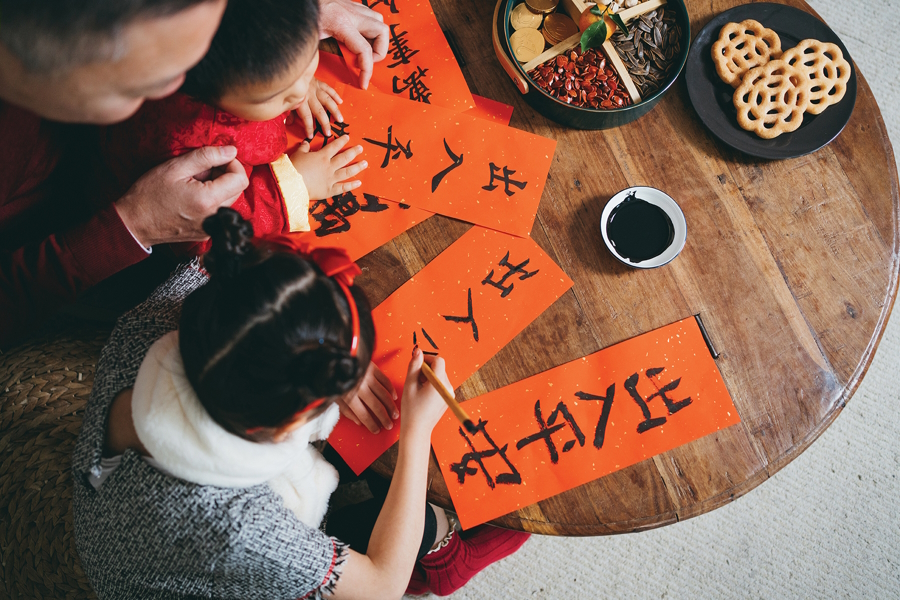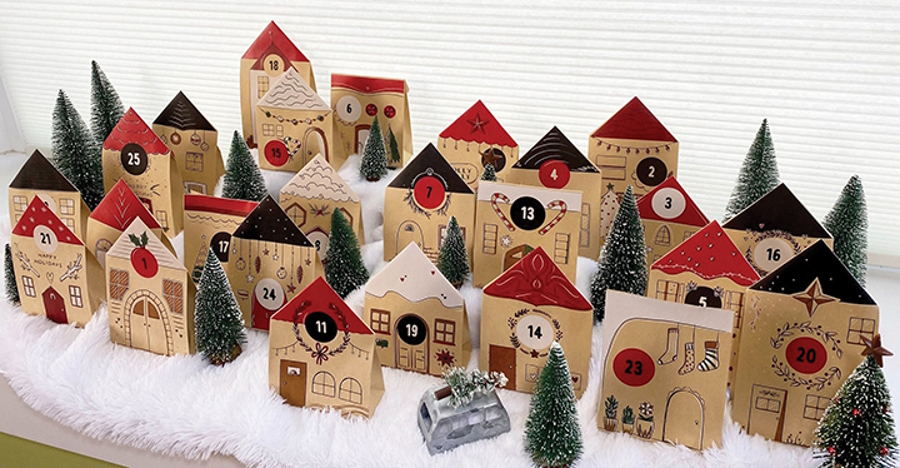
Photo:
iStock
When the holidays roll around each year, it’s easy to feel overwhelmed by all the extra items on our to-do lists. No matter how much we remind ourselves that social media is a reel of highlights, those Instagram feeds filled with images of Martha Stewart–caliber festivities can make you feel like you’re not doing enough. But if you take a step back from the doomscrolling, you may be surprised to realize how much your own simple, unphotogenic traditions really mean to your family.
Why traditions matter
Traditions are not as much a part of life as they used to be, and to a certain extent, that’s a good thing. We have a lot more freedom when every aspect of life is not fossilized by prescribed traditions. But when they’re done right, instead of burdensome requirements, traditions are a source of joy and belonging. Most of us cling to some traditions from childhood, even when — and sometimes especially when — our own lives have taken us far from the community and culture of our roots. Traditions serve a multitude of important functions. They can support our mental health, in part by helping to form our identities as members of a group — whether that’s religious, cultural or simply familial — and strengthen our bonds with others in that group. Traditions maintain continuity and offer predictability in a chaotic world. They can even form a sort of tangible memory that preserves personal history.
“We have a holiday tradition of getting a new ornament for whatever has been most important for her that year,” says Cessalee Stovall-Smith, who moved with her now 5-year-old daughter from Australia to work at Seattle Children’s Theatre a year ago. “Last year she got a hot dog ornament because she’s very into hot dogs now that we’re in America.”
What is a tradition?
By one definition, tradition is the passing down of customs, beliefs or rituals from one generation to another. Religious traditions are fundamental to many people’s lives, and even in secular families, the holidays can seem like one big, extended ritual. These types of traditions are often deeply meaningful. But traditions can just as easily be things that emerge organically and become meaningful simply through repetition.
Kevin Malgesini, managing director of Seattle Children’s Theatre, and his husband began an annual friend-group camping trip many years before becoming parents. Their 3-year-old son, Harris, is already invested in the tradition. Last summer, his best friends’ families joined the group and months later, when his preschool teacher talked about camping, Harris proudly piped up, “I go camping!”
“It’s been fun to see how much he owns it,” says Malgesini.
While ethnicity and religion are still major factors, our concept of community has expanded, and our found families influence our traditions, too. Patricia Andre-Edgar, communications and marketing director at PEPS, identified two annual traditions that are important to her Asian American family: the Lunar New Year and schultüte, a tradition that Andre-Edgar learned about from her German colleague at PEPS.

“Even though my family has no German roots, I just thought it was so fun and creative, and just a really interesting thing to do that seemed so refreshing. So, I introduced it to my family when they started school five years ago, and now if I didn’t do it, my kids would notice. They look forward to it every year,” she says.
When I was in high school, I was invited to join my Swedish friend’s family for Saint Lucia’s Day. I loved it so much that, to this day, my family officially launches the Christmas season by baking and decorating on Dec. 13. When I asked my 15-year-old which of our family traditions they valued most, they answered, “I really like how we always bake cookies when we decorate the tree.”
Celebrate your traditions
Some families have more traditions than others. The best balance between consistency and novelty depends on your family’s temperament. But even if you’re a family full of innovators, you probably have more traditions than you realize. Innovation itself can be a tradition. Maybe you always visit someplace new for your annual vacation, or try new recipes every Sunday. What things would your kids be upset about if you changed them or gave them up? When it comes to celebrating traditions, the key word is “celebrate.”
“My family has a tiny pumpkin patch, so Pumpkin Hollow is a big family celebration. [For] Harris’ very first Pumpkin Hollow, we carved a pumpkin and put him in it,” says Malgesini. We follow our traditions because they bring us joy.
Hold them lightly
Our values change over time and across generations, so as important as it is to cherish our traditions, we also need to hold them lightly. Thanksgiving turkeys don’t bring joy to vegetarians, and lapsed Catholics aren’t likely to feel uplifted at midnight mass. Traditions can cease to bring joy or have meaning; often they simply become impractical.
When Smith-Stovall left Australia, Christmas had to change for her daughter.
“It was really difficult to explain to her that instead of a hot, 100-degree day and going swimming with her cousins, we were bundling up and going to visit my parents in Indiana.”
Traditions can and should evolve as we do.
Seattle mom Jacqui Gilroy grew up making linked chains out of red and green construction paper to count down the days until Christmas. When her son Wyatt was a toddler, she started helping him do the same. The tradition leveled up like a Pokémon when the artist mother of one of his closest friends started creating Christmas villages, little houses that serve as an Advent calendar, in which you can hide little treats and trinkets. Now 9, Wyatt is obsessed with decorating their new and improved Advent calendar.

“Every year, we deck it out with the fake snow, twinkle lights and little trees, so it has the magical vibe,” says Gilroy.
Celebrating the rituals that have meaning for your family strengthens personal identity and reinforces family values — even if they take forms your grandparents could never have imagined. Both Smith-Stovall and Malgesini say that morning affirmations with Snoop Dogg have become an important daily ritual for their families.
More holiday family fun: |











